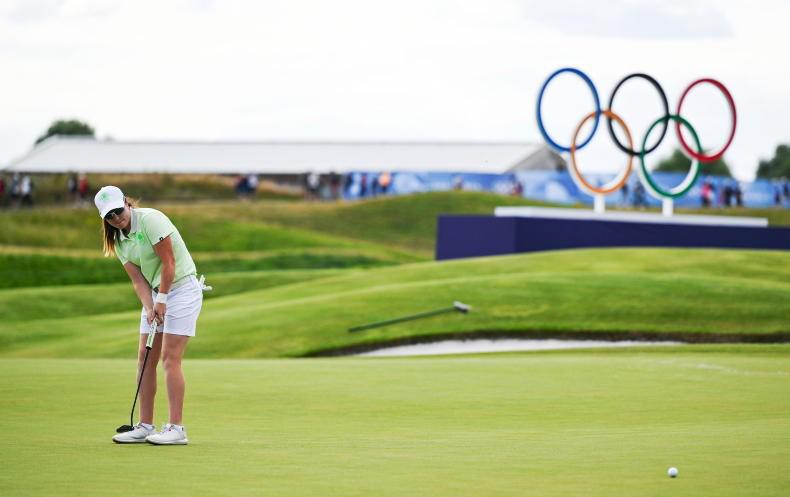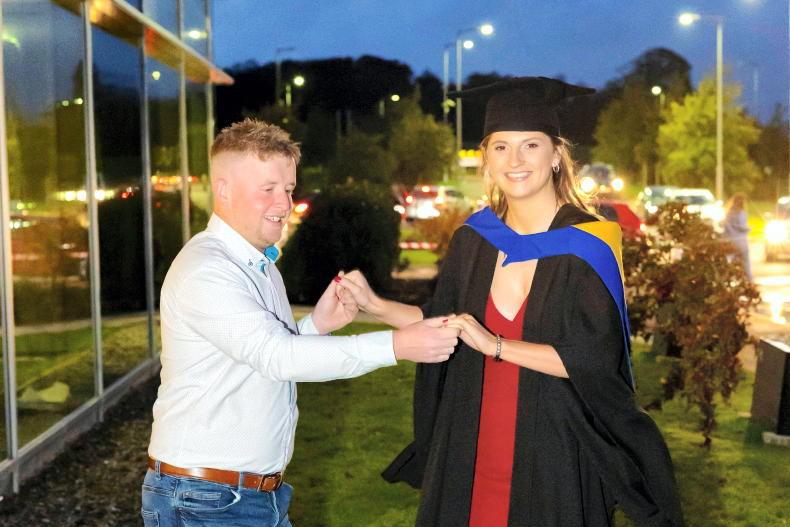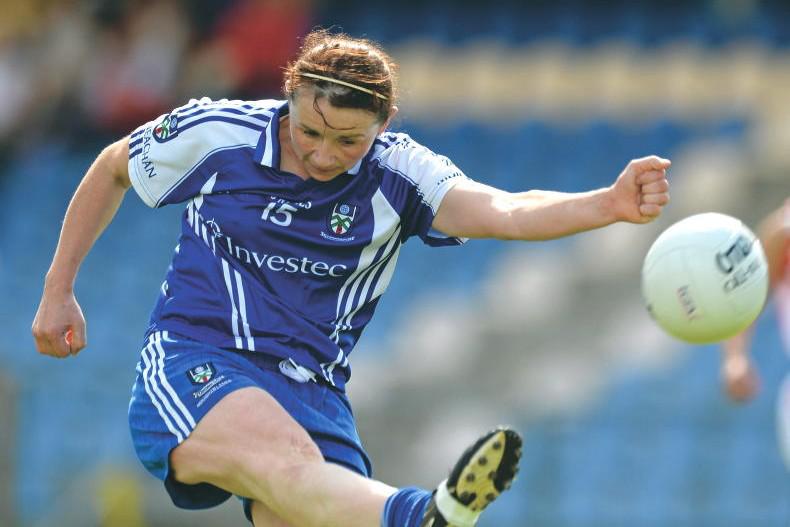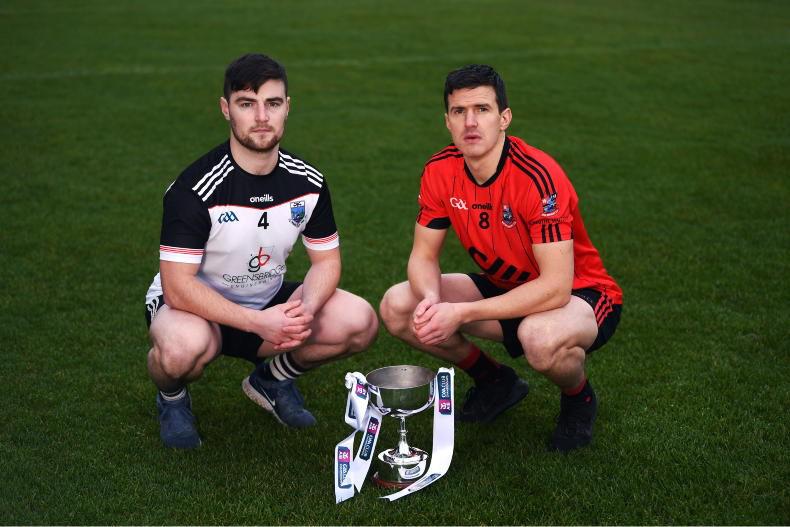While there is club GAA action taking place across the country, media attention remains firmly fixed on the inter-county side.
With no matches to cover, it means that managerial changes, potential or real, get a lot of the spotlight, with much speculation over who a new boss will have as part of his backroom team.
The recent announcement that Davy Fitzgerald will take over as Antrim hurling manager brought a few guffaws about the length of the journey, given that the trips from Clare to Wexford and Waterford were considered a bit of a trek.
However, the key takeaway is that Davy is box-office, and that can only be a good thing for Antrim and raising the profile of the team and the sport in Ulster.
Peter Queally will be taking over the bainisteoir’s bib on Suirside, and one of his first utterances in a radio interview was that four teams qualifying from the provincial hurling championships would be fairer than the current situation, where only three advance.
It’s a valid point to make, but equally valid is to say that it might take away some of the cutting edge that is currently attached to the Munster and Leinster championships.
Whither or which, it’s not likely to change by next year, and Queally must try to negotiate a provincial competition featuring the All-Ireland finalists and runners-up, as well as one of the greatest teams of all time, eager to bounce back after being dethroned.
And that’s not to mention Tipp. He will have his work cut out for him, but Waterford have shown in the past that they can come with a surge.
Queally’s ascension was not a huge surprise, something which certainly cannot be said about the Offaly County Board’s decision to appoint Mickey Harte as joint-manager, alongside current incumbent Declan Kelly.
The star of the All-Ireland wins of 1987 and 1988 had led the county to the Tailteann Cup last year, but they could not kick on in the Sam Maguire battle in 2024
There had not been a whisper beforehand – senior players were summoned to a Zoom call not long before the news was made public – and there has been quite a bit of discourse since then about how the set-up will work.
It will be Harte’s 23rd straight year involved in senior inter-county football, taking in spells with his native Tyrone, Louth and Derry, and his passion cannot be questioned.
However, how will he blend with somebody with whom he has never worked before? Equally, how will Kelly adapt to going from being the man in charge to one of two?
Joint-managements can work – Harte’s time in Tyrone was preceded by the double-act of Art McRory and Eugene McKenna, and he was succeeded by Brian Dooher and Feargal Logan, who won the All-Ireland – but both of those partnerships had foundations laid beforehand.
Offaly do have the players from the 2021 All-Ireland U20 win coming on stream, but they are starting from a low base, having finished sixth in Division 3 of the league last year and then losing all three games in the second-tier Tailteann Cup.
Which brings us to another Leinster team in green and gold, Meath, who are on the lookout for a new manager following Colm O’Rourke’s departure.
The star of the All-Ireland wins of 1987 and 1988 had led the county to the Tailteann Cup last year, but they could not kick on in the Sam Maguire battle in 2024. His term had been for three years, with a review after two.
While there did not seem to be a danger of a termination on the part of the county board, there was seemingly a need to have a management team in place for last Tuesday night’s monthly board meeting, so that delegates could approve the set-up.
While O’Rourke had been making progress in sourcing replacements for the departing Stephen Bray and Barry Callaghan, he was not in a position to confirm, as they are involved with club teams who are still in their county championships and so he decided not to proceed.
It is a pity that one of the Royal County’s most storied names could not manage to bring them back to the top echelons of senior football – it could be said that he got the job too late. Perhaps, but it’s a fairly harsh business.

Leona Maguire watches a putt on the eighteenth green during round one of the women's individual strokeplay at Le Golf National at the 2024 Olympic Games in Paris. \ Brendan Moran/Sportsfile
After a finish of joint-37th at the Women’s Open at St Andrews last weekend, Leona Maguire will be looking to put on a show as the KPMG Irish Open takes place at Dromoland Castle in Co Clare.
The event has had a patchy history – first run from 1994-2003, it was revived in 2008 as part of the push to host the Solheim Cup at Killeen Castle but, after the 2012 event, it lay dormant for a decade.
Dromoland was the venue for the newly repackaged competition in 2022 and again last year, when a crowd of 31,000 attended – comparable with those going to the majors in the years prior.
The ‘can’t see, can’t be’ line has almost become a cliché, but there is truth in every cliché and this one certainly can’t be denied. Seeing the top Women’s European Tour professionals in action in Ireland can only inspire the next generation.
What would give it even more of a push is a home winner, something that has been absent from any of the previous 17 editions across the event’s three iterations.
Cork club’s preparations stand to them in emergency
Sunday’s Co-op SuperStores Cork Premier Senior Hurling Championship game between Midleton and Kanturk was ten minutes old when a medical emergency caused it to be suspended.
A man in the stand at Castletownroche suffered a heart attack, but the presence of the two team doctors – Dr Michael Thompson of Midleton and Kanturk’s Dr Brian O’Connell – and an on-site defibrillator meant that he was immediately treated and then airlifted to hospital.
The defibrillator at the pitch is one of three in the Castletownroche community and was donated by the Relihan family, following the sudden death of father and husband Denis in May 2008.
Defibrillators may be expensive, but they could never be called a waste of money.
While there is club GAA action taking place across the country, media attention remains firmly fixed on the inter-county side.
With no matches to cover, it means that managerial changes, potential or real, get a lot of the spotlight, with much speculation over who a new boss will have as part of his backroom team.
The recent announcement that Davy Fitzgerald will take over as Antrim hurling manager brought a few guffaws about the length of the journey, given that the trips from Clare to Wexford and Waterford were considered a bit of a trek.
However, the key takeaway is that Davy is box-office, and that can only be a good thing for Antrim and raising the profile of the team and the sport in Ulster.
Peter Queally will be taking over the bainisteoir’s bib on Suirside, and one of his first utterances in a radio interview was that four teams qualifying from the provincial hurling championships would be fairer than the current situation, where only three advance.
It’s a valid point to make, but equally valid is to say that it might take away some of the cutting edge that is currently attached to the Munster and Leinster championships.
Whither or which, it’s not likely to change by next year, and Queally must try to negotiate a provincial competition featuring the All-Ireland finalists and runners-up, as well as one of the greatest teams of all time, eager to bounce back after being dethroned.
And that’s not to mention Tipp. He will have his work cut out for him, but Waterford have shown in the past that they can come with a surge.
Queally’s ascension was not a huge surprise, something which certainly cannot be said about the Offaly County Board’s decision to appoint Mickey Harte as joint-manager, alongside current incumbent Declan Kelly.
The star of the All-Ireland wins of 1987 and 1988 had led the county to the Tailteann Cup last year, but they could not kick on in the Sam Maguire battle in 2024
There had not been a whisper beforehand – senior players were summoned to a Zoom call not long before the news was made public – and there has been quite a bit of discourse since then about how the set-up will work.
It will be Harte’s 23rd straight year involved in senior inter-county football, taking in spells with his native Tyrone, Louth and Derry, and his passion cannot be questioned.
However, how will he blend with somebody with whom he has never worked before? Equally, how will Kelly adapt to going from being the man in charge to one of two?
Joint-managements can work – Harte’s time in Tyrone was preceded by the double-act of Art McRory and Eugene McKenna, and he was succeeded by Brian Dooher and Feargal Logan, who won the All-Ireland – but both of those partnerships had foundations laid beforehand.
Offaly do have the players from the 2021 All-Ireland U20 win coming on stream, but they are starting from a low base, having finished sixth in Division 3 of the league last year and then losing all three games in the second-tier Tailteann Cup.
Which brings us to another Leinster team in green and gold, Meath, who are on the lookout for a new manager following Colm O’Rourke’s departure.
The star of the All-Ireland wins of 1987 and 1988 had led the county to the Tailteann Cup last year, but they could not kick on in the Sam Maguire battle in 2024. His term had been for three years, with a review after two.
While there did not seem to be a danger of a termination on the part of the county board, there was seemingly a need to have a management team in place for last Tuesday night’s monthly board meeting, so that delegates could approve the set-up.
While O’Rourke had been making progress in sourcing replacements for the departing Stephen Bray and Barry Callaghan, he was not in a position to confirm, as they are involved with club teams who are still in their county championships and so he decided not to proceed.
It is a pity that one of the Royal County’s most storied names could not manage to bring them back to the top echelons of senior football – it could be said that he got the job too late. Perhaps, but it’s a fairly harsh business.

Leona Maguire watches a putt on the eighteenth green during round one of the women's individual strokeplay at Le Golf National at the 2024 Olympic Games in Paris. \ Brendan Moran/Sportsfile
After a finish of joint-37th at the Women’s Open at St Andrews last weekend, Leona Maguire will be looking to put on a show as the KPMG Irish Open takes place at Dromoland Castle in Co Clare.
The event has had a patchy history – first run from 1994-2003, it was revived in 2008 as part of the push to host the Solheim Cup at Killeen Castle but, after the 2012 event, it lay dormant for a decade.
Dromoland was the venue for the newly repackaged competition in 2022 and again last year, when a crowd of 31,000 attended – comparable with those going to the majors in the years prior.
The ‘can’t see, can’t be’ line has almost become a cliché, but there is truth in every cliché and this one certainly can’t be denied. Seeing the top Women’s European Tour professionals in action in Ireland can only inspire the next generation.
What would give it even more of a push is a home winner, something that has been absent from any of the previous 17 editions across the event’s three iterations.
Cork club’s preparations stand to them in emergency
Sunday’s Co-op SuperStores Cork Premier Senior Hurling Championship game between Midleton and Kanturk was ten minutes old when a medical emergency caused it to be suspended.
A man in the stand at Castletownroche suffered a heart attack, but the presence of the two team doctors – Dr Michael Thompson of Midleton and Kanturk’s Dr Brian O’Connell – and an on-site defibrillator meant that he was immediately treated and then airlifted to hospital.
The defibrillator at the pitch is one of three in the Castletownroche community and was donated by the Relihan family, following the sudden death of father and husband Denis in May 2008.
Defibrillators may be expensive, but they could never be called a waste of money.









SHARING OPTIONS